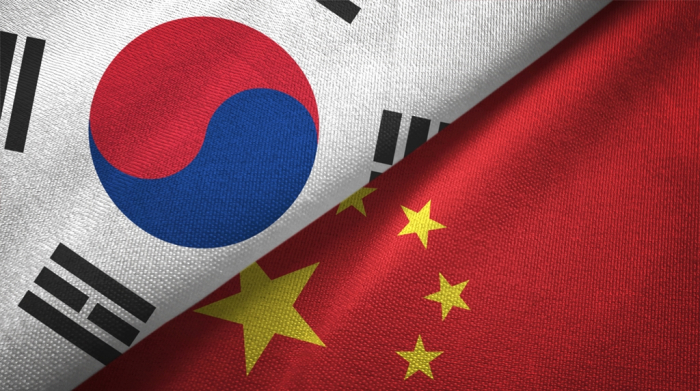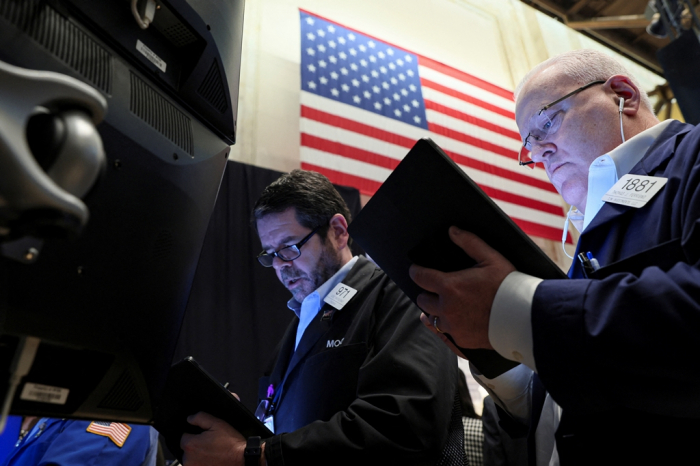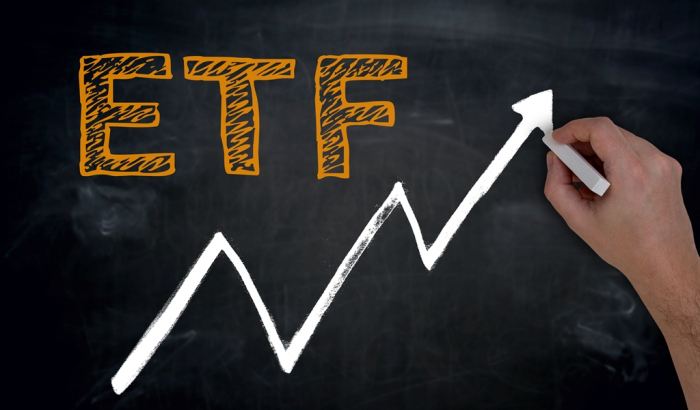Korean stock market
China, India: Korean investors’ next stock investment targets
Retail investors are increasingly enticed to the emerging markets’ looming growth potential, analysts say
By Apr 19, 2023 (Gmt+09:00)
3
Min read
Most Read
LG Chem to sell water filter business to Glenwood PE for $692 million


Kyobo Life poised to buy Japan’s SBI Group-owned savings bank


KT&G eyes overseas M&A after rejecting activist fund's offer


StockX in merger talks with Naver’s online reseller Kream


Mirae Asset to be named Korea Post’s core real estate fund operator



The US stock market has long been the prime investment destination for South Korean investors, lured by the dynamics of the global top economy.
With the collapse of Silicon Valley Bank, however, Koreans are moving their money away from the US to emerging markets, notably China and India.
According to market tracker FnGuide, China funds, which cover Greater China, and India funds, have attracted 238.2 billion won ($181 million) and 120.2 billion won, respectively, from Korea’s retail investors, so far this year.
Of 20 regional funds created by Korean asset managers, China and India took the top two posts in terms of value. US funds, coveted by many Korean individual investors last year, saw a net outflow of 227.9 billion won year to date.
With growing market uncertainty in the wake of the SVB incident, coupled with emerging markets’ post-pandemic resilience, Korean money is flowing into China and India, analysts said.

China’s economy, the world’s second-largest, got off to a solid start this year as consumers went on a spending spree after years of strict COVID-19 restrictions ended.
The country’s economy grew 4.5% in the first quarter from a year earlier, beating market expectations, its government data showed on Tuesday.
According to the International Monetary Fund, China and India are expected to see their 2023 gross domestic product expand by 5.2% and 5.9%, respectively, four times higher than the average growth rate of 1.3% for advanced countries.
The two Asian economic giants are forecast to contribute to world economic growth by 22.6% and 12.9%, respectively, through 2028, the IMF said.
“The US market is struggling with high interest rates. We’re more positive toward China and India, which have greater growth potential,” Pinebridge Investments, which manages 190 trillion won in assets, said in a research note.

BUY ON DIP
China funds and India funds, launched by Korean asset managers, on average posted return rates of 3.8% and 0.3%, respectively, so far this year – the lowest among major regional funds.
That’s because China has been mired in an ongoing conflict with the US while India has been plagued by market corrections following accounting scandals at big companies.
Analysts now expect China to see a full-fledged economic recovery with the so-called reopening stocks among the market darlings. India, in turn, is expected to see windfall gains by enticing American factories to build factories there amid the protracted US-China conflict.
India’s relatively high birthrate is also expected to push its economic growth higher, analysts said.
The fund that has received the most capital among China funds is TIGER China Hang Seng Tech, an exchange-traded fund (ETF), with 108 billion won in fund inflows so far this year.

Other notable China-related ETFs include TIGER China Electric Vehicle Solactive ETF (71.6 billion won), KODEX China CSI300 (68.5 billion won) and KOSEF India Nifty 50 (64 billion won).
TIGER China Hang Seng Tech follows the Hang Seng Tech Index, which includes China’s leading tech companies such as Tencent and Alibaba.
TIGER China Electric Vehicle Solactive invests in Chinese companies in the electric vehicle value chain, including Contemporary Amperex Technology Company Ltd. (CATL) and EV maker BYD.
KOSEF India Nifty 50 is a fund that invests in the top 50 Indian blue-chip companies. Among the companies in the portfolio are Infosys, the first Indian company listed on the Nasdaq, and Tata Consultancy Services, a leading Indian consulting firm.
Overall, Korea’s retail investors are increasingly enticed to ETFs, which offer a basket of securities, as they are seen as safer than individual stocks in times of market volatility.
Write to Eui-Myung Park at uimyung@hankyung.com
In-Soo Nam edited this article.
More to Read
-
 Korean stock marketSuper-rich Koreans eye return to stocks despite weaker economy
Korean stock marketSuper-rich Koreans eye return to stocks despite weaker economyApr 10, 2023 (Gmt+09:00)
2 Min read -
 Korean stock marketInvestors ready their return to Korean stock market but with bet on declines
Korean stock marketInvestors ready their return to Korean stock market but with bet on declinesApr 06, 2023 (Gmt+09:00)
2 Min read -
 Korean stock marketVIP Asset’s new mutual fund to forgo operating fees if it posts losses
Korean stock marketVIP Asset’s new mutual fund to forgo operating fees if it posts lossesMar 31, 2023 (Gmt+09:00)
2 Min read -
 Korean stock marketTIGER KEDI30 ETF tops Korean retail investors’ themed stock buy list
Korean stock marketTIGER KEDI30 ETF tops Korean retail investors’ themed stock buy listDec 27, 2022 (Gmt+09:00)
2 Min read -
 Korean stock marketETFs entice Korean investors amid volatile market
Korean stock marketETFs entice Korean investors amid volatile marketMar 21, 2022 (Gmt+09:00)
3 Min read
Comment 0
LOG IN


